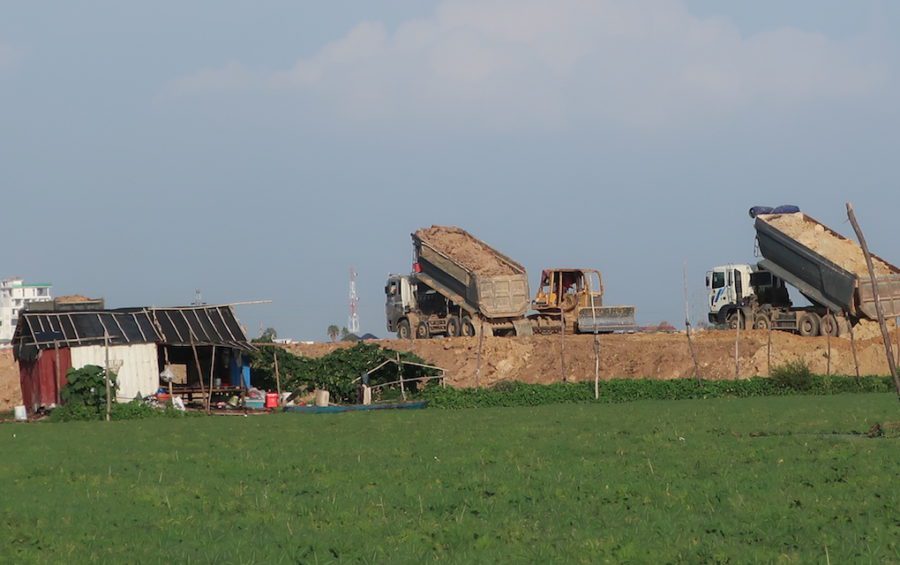The Environmental Ministry has this year stopped sharing environmental and social impact assessments for new development projects with NGO Forum, the civil society network said.
The assessments, required by law for all investment projects as well as state-run developments, had already been increasingly hidden from public view despite laws and policy guidelines encouraging public participation, groups said.
NGO Forum land and forestry program manager Pheap Sophea said last week that the Environment Ministry stopped consulting the network about impact assessments this year.
The ministry had previously shared draft reports with NGO Forum for comment and consultation, he said. Now the group could not evaluate development projects’ impact on natural resources and communities, Sophea said. He was particularly interested in a $1.5 billion, 700 MW coal-fired power plant planned in Koh Kong’s Botum Sakor district, he said.
He said policy guidelines as well as the law required that development projects not only conduct environmental and social impact assessments, but that the Environment Ministry then consult with relevant partners including NGOs.
The Environmental Protection Law says the ministry “shall encourage public participation” and “shall provide information” in response to requests from the public. A 2012 guideline document co-produced by the ministry and NGO Forum says NGOs and impacted populations are stakeholders to be included in the assessment process.
“[We] demand that all companies must publish EIA reports,” Sophea said. “They have to prepare the document comprehensively, and every EIA has to have the involvement of related partners.”
He said he did not know whether the Environment Ministry had decided to work with other NGOs.
Environment Ministry spokesperson Neth Pheaktra would only say that the process involves civil society organizations, without answering questions about why it had stopped sharing the reports with NGO Forum.
“All development projects approved by the Council for the Development of Cambodia must undergo an environmental assessment to study the environmental and social impacts and study the solutions to minimize the impact on each project,” Pheaktra said.
“The study, assessment and decision-making on the environmental impact report involves the participation of inter-ministerial, institutional, civil society organizations, as well as local authorities and citizens, where all their opinions are incorporated into the impact study and resolution of cases there are side effects. This is the environmental and social responsibility of all development projects.”
Other groups said they were already largely shut out of the process, especially amid efforts to make the reports publicly available.
Thy Try, executive director of open data NGO Open Development Cambodia, said there was insufficient disclosure of final reports. The group had only been able to obtain a total of 18 draft reports to publish on its website over several years, he said.
“It is extremely important to ensure the well-being of the citizens and local communities affected by the fast expansion of projects being implemented in Cambodia,” Try said, calling for “more effective and transparent communication between the government, the public and the private sector.”
“EIA reports inform citizens and enhance their understanding, enabling them to participate in public decision-making and to defend their rights and interests,” he said.
Pech Pisey, executive director of Transparency International Cambodia, said the lack of an Access to Information Law — one many pieces of legislation stalled in the drafting stage for years — meant there were no penalties to enforce companies and government institutions to disclose their impact assessments.
“We often ask to have reports shared [with us],” he said. “Both authorities and companies use their rights [to say] it’s not their obligation to share it publicly. So they don’t share it. They can say it’s their companies’ confidential document between them and the authorities.”













